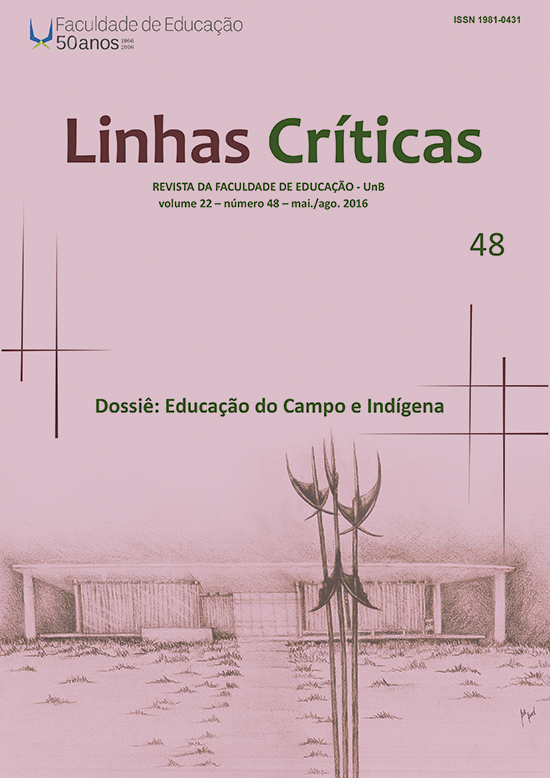Relationship between teaching functional condition and the perception of working conditions
DOI:
https://doi.org/10.26512/lc.v22i48.4908Keywords:
Teacher’s labor, Functional conditions, Critical theoryAbstract
This study aims to verify whether the functional condition of a group of active female teachers in the first cycle of Primary Education of Sao Paulo state’s public school system interferes in the perception they have of their working conditions. As a research procedure, it was applied a questionnaire to 37 teachers, among them three stable teachers, eight effective teachers and 26 Occupant of Activity Function, no job security. In order to analyze the data, this study was based on the Marxist concept of alienation and its theoretical developments made by the authors of the critical theory of society, especially Adorno and Marcuse. These data demonstrated that the OFA teachers tend to have higher conforming feelings, what is formalized on the opinions with lower criticality.
Downloads
References
ADORNO, Theodor. Mínima moralia. Lisboa. Editora: edições 70, 1983.
ANTUNES, Ricardo; ALVES, Giovani. As mutações no mundo do trabalho na era da mundialização do capital. Educação & Sociedade, Campinas, v. 25, n. 87, p. 335-351, mai./ago, 2004.
BARBOSA, Andreza. Os salários dos professores brasileiros: implicações para o trabalho docente. Araraquara, 2011. Tese de doutorado. UNESP.
CROCHÃK, José Leon. Notas sobre trabalho e sacrifício. Trabalho, Educação e Saúde,1(1):61-73, 2003.
DIAS-DA-SILVA, Maria HelenaFrem; LOURENCETTI, Gisela do Carmo. A voz dos professores e algumas reformas educacionais nas séries finais do ensino fundamental: desencontros ou impasses? In: SAMPAIO, Maria das Mercês Ferreira (org). O cotidiano escolar frente à s políticas educacionais ”“ 1ª edição, 2002. Araraquara: JM Editora.
FREUD, Sigmund. O mal-estar na civilização, novas conferências introdutórias à psicanálise e outros textos(1930-1936) / Sigmund Freud. São Paulo: Companhia das Letras, 2010.
HORKHEIMER, Max; ADORNO, Theodor. Temas básicos de Sociologia. São Paulo: Cultrix, 1973.
HORKHEIMER, Max; ADORNO, Theodor. Dialética do Esclarecimento. Rio de Janeiro: Jorge Zahar, 1985.
MAAR, Wofgang Leo. A Dialética da Centralidade do Trabalho. Ciência e Cultura (SBPC), São Paulo, v. 58, p. 26-28. 2006.
MARCUSE, Herbert. A ideologia da sociedade industrial. Rio de Janeiro: Zahar Editores, 1967.
MARCUSE, Herbert. Eros e Civilização: uma interpretação filosófica do pensamento de Freud. Rio de Janeiro: Zahar Editores, 1969.
MARX, Karl. O capital. São Paulo: Abril Cultural, 1983.
MARX, KarlManuscritos econômicos-filosóficos. São Paulo: Editora Martin Claret, 2006.
MARX, Karl; ENGELS, Friedrich. A ideologia alemã: teses sobre Feuerbach. São Paulo: Editora Moraes, 1994.
OLIVEIRA, Dalila. Andrade. A Reestruturação do Trabalho Docente: precarização e flexibilização.Educação e Sociedade, Campinas - SP, v. 25, n.89, p. 1127-1144. 2004.
RESENDE, Anita Cristina de Azevedo.Da relação indivíduo-sociedade. Educativa(UCG), v. 10, p. 29-46, 2007.
SÁNCHEZ VÁSQUEZ, Adolfo. Filosofia da práxis. Rio de Janeiro. Paz e Terra, 1977.
SELLTIZ, Claire et. al. Métodos de pesquisa nas relações sociais. São Paulo: EPU, 1974.
Downloads
Published
How to Cite
Issue
Section
License
Copyright (c) 2017 Linhas Críticas

This work is licensed under a Creative Commons Attribution 4.0 International License.
Authors who publish in this journal agree to the following terms:
-Authors maintains the copyright and grants the journal the right of first publication, the work being simultaneously licensed under the Creative Commons Attribution License which allows the sharing of the work with recognition of the authorship of the work and initial publication in this journal.
- Authors are authorized to enter into additional contracts separately, for non-exclusive distribution of the version of the work published in this journal (eg publish in institutional repository or as a book chapter), with acknowledgment of authorship and initial publication in this journal.
-Authorers are allowed and encouraged to publish and distribute their work online (eg in institutional repositories or on their personal page) at any point before or during the editorial process, as this can generate productive changes as well as increase the impact and the citation of published work (See The Effect of Free Access).



